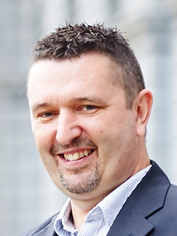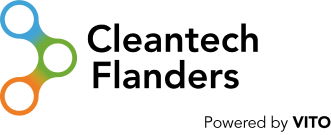In the EU’s ambition to become climate-neutral by 2050, the electrification of transport and mobility plays a crucial role. In this transition, internal combustion engines need to make way for electric vehicles powered by batteries. With so many actors active throughout the entire battery value chain, Flanders is a veritable hub for e-mobility.
The automotive industry, which encompasses so much more than just car manufacturing, has traditionally been a very important branch of industry in Flanders and Belgium. For decades, cars, trucks, buses and other vehicles have rolled off assembly lines here. Including suppliers and related companies, the sector accounts for more than 300 companies, a turnover of EUR 16 billion and no fewer than 45,000 direct jobs.
However, in the near future, the sector will undergo a major transformation. Anything that can be electrified will be electrified. And this means that internal combustion engines will no longer be at the heart of vehicles, they will be replaced by electric motors, whether for freight or passenger transport.
New battery technologies
Innovation will be needed to make this transition a success, here in Flanders and across the widest possible value chain of batteries. And innovation means highly-trained workers and highly skilled researchers. Our region has always excelled in these areas. It is therefore crucial to keep the bar high enough. The large-scale embedding of knowledge and research institutions in Flanders, such as universities but also strongly market-oriented research centres, is an asset in this respect. The research institutions and universities that collaborate under the flag of EnergyVille (VITO, imec, KULeuven and UHasselt)[CM1] , as well as VUB are playing a leading role in the research and development of new battery technologies, both on a national and international level. VITO/EnergyVille is also an active partner within EIT InnoEnergy, which organises training courses on battery research through the European Battery Alliance and helps in bringing battery innovations to the market faster.
The value chain for e-transport and e-mobility is therefore inextricably linked to the value chain for batteries. It is therefore crucial for Flanders to reinforce its role in this regard, in the widest possible sense. The presence of so many companies active (directly or indirectly) in the automotive industry can only help.
For example, the two major car factories in our country: Volvo Cars in Ghent and Audi in Brussels. Both factories already have their own facilities for the production of batteries. Volvo’s facility was set up in March 2020. The batteries are used in two models: the Volvo XC40 Recharge (the car maker’s first all-electric model) and the C40 Recharge. This year, Volvo intends to achieve a share of no less than 60% electric in its total production at Ghent.
The Audi factory in Brussels is one of the German carmaker’s most important “e-sites”. The Audi e-tron, an all-electric SUV, has been produced here since 2018. The Audi e-tron Sportback is a recent addition to the range. And the Audi Q8 e-tron will also soon roll off the assembly line. Moreover, Audi’s Brussels plant is also certified CO2-neutral, a world first.
Also heavy duty transport
Besides car factories, Flanders also has several large-scale construction sites for buses. The VDL Bus & Coach factory in Roeselare builds fully electric city buses. The company is a frontrunner in e-mobility, something it owes to its long-standing focus on electric transportation. VDL Citeas city buses are currently in use in more than 50 European cities. Together, the more than 800 buses have already covered more than 100 million electric kilometres. Meanwhile, the company is continuing down the electric path. This year, it will commission a new CO2-neutral production site in Roeselare.
Another well-known bus manufacturer in Flanders is of course Van Hool, based in Lier. Although the company was originally more active in the development of hydrogen-powered buses, it is now also active in the electric bus segment. In 2020, Van Hool launched the CX45E, an all-electric coach intended for the North American market.
Although electric power from batteries seems less suitable for long-distance heavy duty vehicles, Volvo is already convinced that trucks can also be fully electric, i.e. powered only by batteries. And once again, Volvo Trucks’ Ghent site is a crucial player in this ambition. The plant supplies batteries to all Volvo Trucks sites in Europe. The company started selling its very first electric trucks in 2019: the Volvo FL Electric and the Volvo FE Electric. Volvo Trucks’ electric portfolio has since grown to six models.
In January 2021, the creation of a new business area was announced, Volvo Energy, with the purpose of strengthening business flow of batteries over the life cycle. The new business area Volvo Energy will strengthen the Volvo Group’s business flow of batteries over the life cycle as well as the customer offer for charging infrastructure. At the same time, the environmental impact from electric and hybrid electric commercial vehicles and machines will be reduced by giving used batteries a second life in different applications.
Meanwhile, niche players intransport and mobility are also exploring the electric option. For example, Mol Cy, a Staden-based manufacturer of heavy equipment such as railway rolling stock and terminal trucks, is looking into how this form of specialised transport can also be electrified.
And then of course there are the many different suppliers. Flanders traditionally had a very strong line-up in this area. Umicore, Siemens, ABB, Melexis, PEC, Leclanché, DAF, Borit, Punch Metals, Solvay, 3M, JSR Micro, Punch Powertrain … all companies with branches in Flanders that are active in e-transport or e-mobility. In the area of R&D in battery innovation, a company like Umicore stands out. Not only does the company research better batteries (e.g. more powerful variants with longer lifespans) but also ways to recover and recycle battery materials – and raw materials – as much as possible, for subsequent use in new batteries or other electronic products.
Towards sustainable European battery production
Our country is also actively involved in two major European projects to stimulate research and innovation in the battery value chain – so-called IPCEI projects. In the first project, started last year, hundreds of companies and organisations from 12 European countries are working together. In the other initiative, which has been running since late 2019, seven Member States are working together. Five Belgian companies are involved in both multi-year projects, which represent an investment of several billion euros: Umicore, Solvay, Nanocyl, Hydrometal and Prayon.
The projects are aiming to revolutionise the European battery market by focusing R&D on both state-of-the-art versions of current lithium-ion batteries and next-generation battery technologies. In this way, the EU has resolutely opted for sustainable battery production, based on energy-efficient production processes and low greenhouse gas emissions throughout the entire value chain. Future European battery production will therefore look substantially different from how it does today. And cleantech will play a leading role in this regard.
Flanders also has extensive knowledge and expertise at its disposal for the reuse and recycling of batteries. Companies such as Febelauto, Bebat, Out of Use, Watt4Ever and ReVolta have experience in setting up process lines for reuse and recycling. And with Umicore, Flanders has a pioneer in the field of end-of-life recycling and the extraction of valuable materials and raw materials from waste batteries.
In 2019, the Flemish technology federation Agoria produced an overview of the business opportunities and challenges regarding the entire value chain for lithium-ion batteries. This study formed the basis for the Re2LiVe project, which examined the collection, logistics, dismantling, remanufacturing, re-use and recycling of end-of-life batteries from electric vehicles. Both companies and knowledge and research institutes are currently busy using the results of the project to devise strategies to take advantage of all these aspects.
Finally, Flanders is also a logistics hub, thanks to its central location in North-West Europe, but also its seaports. It is therefore an important logistics hub for the transport of electric vehicles. The port of Zeebrugge is already fully focused on this, among other things via extensive charging infrastructure for charging unloaded vehicles. The vehicles are charged with power from local windmills and solar panels in the port.

Carlo Mol, Project Manager at VITO/EnergyVille



